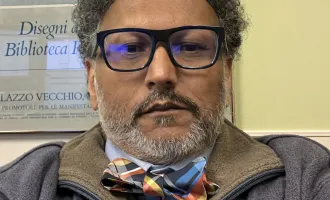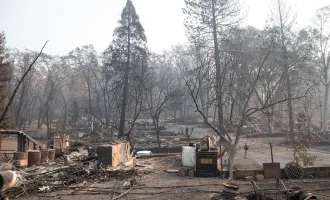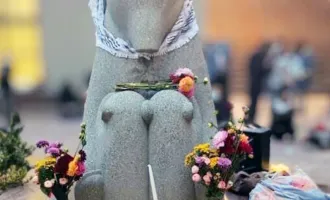
This Date in UCSF History: Panel Decries Impact Of Modern Medicine On Native Health Care
Originally published on December 8, 1992. In order to survive, Native Americans must maintain their tribal customs and not give in to the overbearing paternalism of Western medicine.
This was the message of all three speakers at a conference co-sponsored by the Committee for Health Rights in Central America (CHRiC A) at the New College Nov. 19.
Western medicine is not evil in itself, the speakers agreed, but those who minimize the value of traditional cures do more harm than good because they are destroying the basis of tribal unity.
Wara Alderete, a member of the Calchaquí tribe of South America, has a master’s in public health and works for the South & Meso-American Indian Information Center.
Alderete said she entered the healthcare field to deal with the effects of poverty, disease and racism on her tribe.
She explained that the Western hospitals in her area treat the indigenous population as “dirty, ignorant, evil people,” and the Western physicians disregard the Indian healing traditions and the herbs and natural medicines used by her tribe.
Alderete discussed a disease called maradura, in which the skin shrivels and peels down to the bone.
Western medicine is unable to treat this affliction, but tribal healers use the coca leaf to cure it. Western physicians do not recognize this as a legitimate form of medicine, writing it off as a placebo that appeals to the superstitious.
Aldrete described the danger of such a “paternalistic” approach. It creates dependence due to its overbearing nature, and soon becomes the only choice of healing.
Traditional healing customs decline over time. Then, when financial support to the Western hospitals is cut, the population is in jeopardy because there are no tribal healers to compensate for this medical deficit.
Alderete called for Native American facilitators who could “go outside the tribe” to gather knowledge and bridge the gap between Western and traditional medicine.
Such facilitators would help mainstream society understand the customs of the tribe and would also bring information to the tribe.
“Unity of the mind, body, and spirit is essential for overall health,” Aldrete said, “and traditions are important to maintain this unity.”
Sebastian Quinac, a member of the Cakchiquel tribe of Guatemala, described how the survival of los indios in Guatemala is threatened due to “pestilence brought by the Europeans, their medicine being just one of them.”
He described the home remedies given to him by his mother when he took ill and explained the role of the curandera (healer) who performs ceremonies that please the spirits.
Quinac stated the Indians are losing their natural medicines —as more plants become extinct in the process of “development”— and losing their right to heal themselves.
Armed government troops now occupy the lands of his tribe, forcing people to use Western medicine.
He said it is this disruption and subjugation that is doing most harm to the tribes and called for the unification of traditional remedies with voluntary use of Western medicine.
Diane Williams, a member of the North America Yukon-Athabascan tribe reported depressing statistics: Native Americans have the highest incidence of accidents (maybe alcohol-related) and highest rate of fetal alcohol syndrome of any minority group. She said that Native Americans need to look to their traditions to counteract the damage indicted by Western “civilization.”
She also stressed that unity between the tribes of North and South America would help maintain their traditions.
Williams’s main point was a paraphrase of the Hopi prophecy: for everyone to survive together on this planet, the visitor (the white man) must learn from those who came before (the Native Americans).
It is the gathering of knowledge in this direction, not the reverse, which will bring about the greater good.



